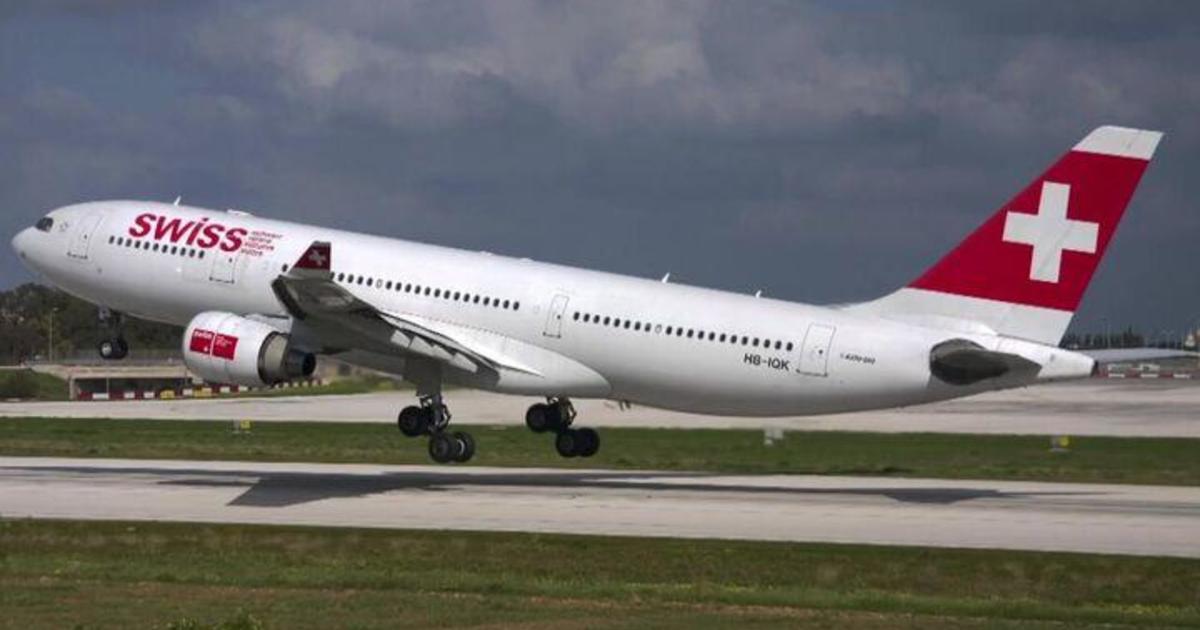Union: MNR Engineer Suspended Without Pay After Deadly Train Wreck
YONKERS, N.Y. (CBSNewYork/AP) -- The Metro-North Railroad engineer who was at the controls when a train derailed and left four people dead this past weekend has been suspended without pay.
William Rockefeller was ordered suspended without pay on Wednesday, the Association of Commuter Rail Employees told CBS 2's Tony Aiello.
His pay was $100,000 per year. With overtime, he made $145,000 last year, the union said.
Meanwhile, National Transportation Safety Board officials announced that drug and alcohol tests for Rockefeller all came back negative.
The NTSB held interviews with Rockefeller on Wednesday.
The day before, his attorney Jeffrey Chartier accompanied Rockefeller to his interview with investigators and described the account Rockefeller gave.
PHOTOS: Metro-North Train Derailment | VIDEO: Watch Full NTSB News Conference
Chartier said the engineer experienced a nod or "a daze,'' almost like road fatigue or the phenomenon sometimes called highway hypnosis. He couldn't say how long it lasted.
What Rockefeller remembers is "operating the train, coming to a section where the track was still clear -- then, all of a sudden, feeling something was wrong and hitting the brakes,'' Chartier said. "He felt something was not right, and he hit the brakes.''
Metro-North Engineer Under Scrutiny In Deadly Train Wreck
He called Rockefeller "a guy with a stellar record who, I believe, did nothing wrong.''
"You've got a good guy and an accident,'' he said. "A terrible accident is what it is.''
Rockefeller "basically nodded,'' said Anthony Bottalico, leader of the rail employees union, relating what he said the engineer told him.
"He had the equivalent of what we all have when we drive a car,'' Bottalico said. "That is, you sometimes have a momentary nod or whatever that might be.''
NTSB member Earl Weener said Tuesday it was too soon to say whether the accident was caused by human error. But he said investigators have found no problems with the train's brakes or rail signals.
Federal investigators wouldn't comment on Rockefeller's level of alertness around the time of the Sunday morning wreck in the Bronx.
They said late Tuesday they had removed Bottalico's union as a participant in the investigation over a breach of confidentiality after he publicly discussed information related to it.
Questions about Rockefeller's role mounted rapidly after investigators disclosed on Monday that the Metro-North Railroad commuter train jumped the tracks after going into a curve at 82 mph, or nearly three times the 30 mph speed limit.
Rockefeller, 46, has worked for the railroad for 15 years and has been an engineer for 10, Weener said. He lives in Germantown, 40 miles south of Albany.
On the day of the crash, Rockefeller was on the second day of a five-day work week, reporting at 5:04 a.m. after a typical nine-hour shift the day before, Weener said.
"There's every indication that he would have had time to get full restorative sleep,'' he said.
Weener didn't address specifically what the engineer was doing in the hours before his shift started but said part of the investigation will be creating a 72-hour timeline of his activities.
Chartier said Rockefeller had gotten "a proper amount of sleep,'' having gone to bed at 8:30 the previous night to wake up at
3:30 a.m. for his shift. He said Rockefeller, before going to bed, had been spending time at home.
Rockefeller had begun running that route on Nov. 17, two weeks before the wreck. Bottalico said Rockefeller was familiar with the route and qualified to run it.
He said Rockefeller had switched just weeks earlier from the night shift to the day shift, "so he did have a change in his hours and his circadian rhythms with regard to sleep.''
The New York Police Department is conducting its own investigation, with help from the Bronx district attorney's office, in the event the derailment becomes a criminal case.
Gov. Andrew Cuomo said Tuesday the engineer could be faulted for the train's speed if nothing else.
"Certainly, we want to make sure that that operator is disciplined in an appropriate way,'' he said. "There's such a gross deviation from the norm.''
A former supervisor, Michael McLendon, who retired from the railroad about a year ago, called Rockefeller "a stellar employee.''
University of Dayton professor Steven Harrod, who studies transportation, said trains typically don't have a speed or cruise control but a power control, and once it's set a train can pick up speed on its own because of the terrain.
"Thus, if the engineer loses attention, the train can gain speed without intervention,'' Harrod said.
In case of an engineer becoming incapacitated, the train's front car was equipped with a dead man's pedal, which must be depressed or the train will automatically slow down.
Trains also can have alarms, sometimes called alerters, which sound if the operators' controls haven't been moved within a certain timeframe. If an engineer doesn't respond, often by pressing a button, brakes automatically operate. But the train that derailed didn't have such a system, a Metro-North spokeswoman said.
Congress has ordered commuter and freight railroads to install technology called positive train control, which uses electronics to monitor trains' positions and speed and stop derailments and other problems, by the end of 2015.
Crews are rebuilding the damaged track where Rockefeller's train crashed. Officials said 98 percent of service was restored to the affected line Wednesday, and full service was set to return on Thursday.
Check Out These Other Stories From CBSNewYork.com:
(TM and © Copyright 2013 CBS Radio Inc. and its relevant subsidiaries. CBS RADIO and EYE Logo TM and Copyright 2013 CBS Broadcasting Inc. Used under license. All Rights Reserved. This material may not be published, broadcast, rewritten, or redistributed. The Associated Press contributed to this report.)



